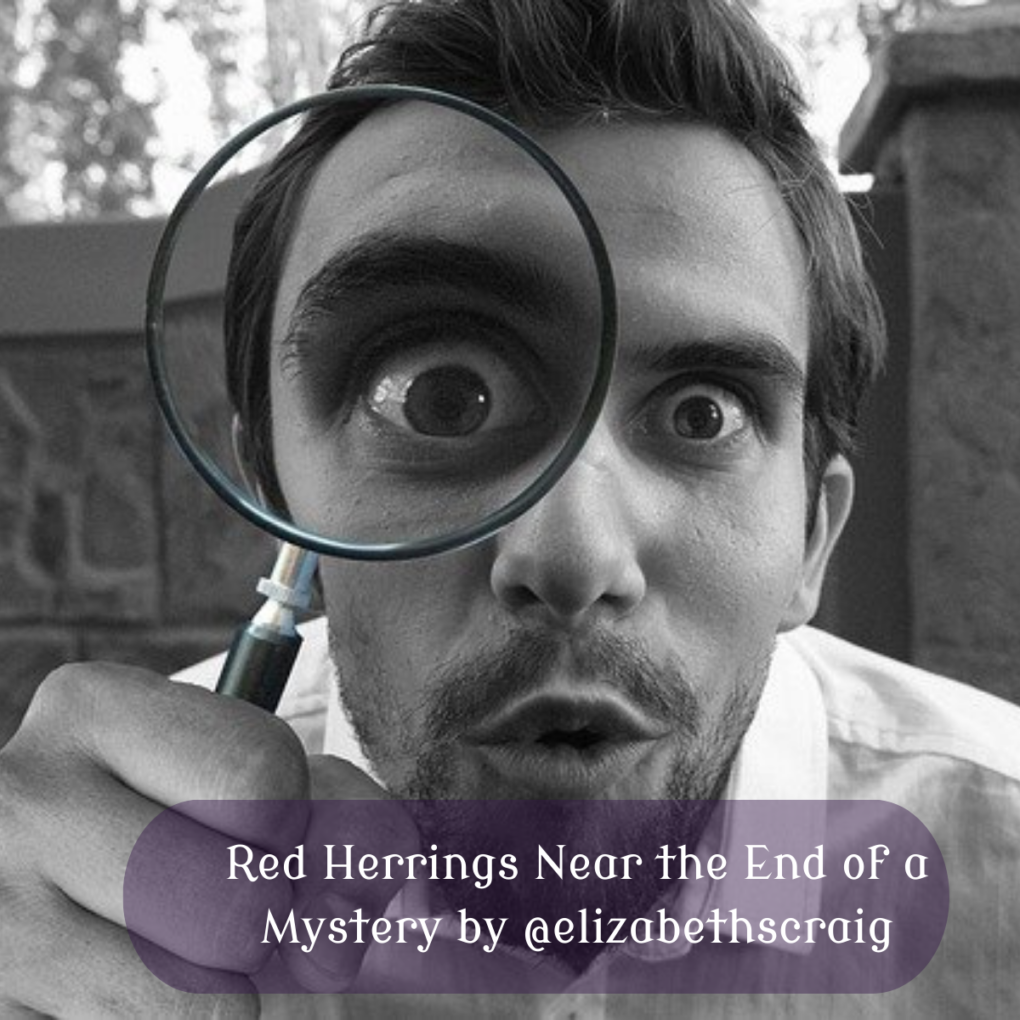by Elizabeth S. Craig, @elizabethscraig
Today I’ve got a quick tip for mystery writers to help keep readers questioning the killer’s identity until the end of the book.
It’s a pretty simple one, but something I frequently don’t see used: throw in a well-developed red herring very close to the end of your mystery.
A red herring, or misdirection, is intended to send mystery readers and the sleuth off in another direction. These could be anything from an alibi that fell through to an overheard argument between the victim and one of the suspects. Red herrings can also be responsible for making the sleuth and reader believe that the motive for murder was greed when it was actually revenge, for instance.
In the case of the red herring near the end of the book, it needs to be something that looks like a pretty convincing lead. What I like to do is to have it be pointing at the best runner-up I have to the killer. Who was the suspect I considered having be the murderer before I chose the one I ultimately went with?
Then I have several last-minute signs pointing to that person. It’s even better if the red herring is just a subtle slip of the tongue. That way, the reader can seize on it as a major clue . . . right before the real killer is unmasked.
One reason I enjoy reading mysteries is having the murderer’s identity totally stump me. It’s not too often that it happens (I tend to dissect the mysteries I read), but when it does, it makes my day!
If you’re a mystery reader, what’s your favorite aspect of the genre? If you’re a mystery writer, what types of red herrings do you like to use?
Keeping Mystery Readers Guessing: Share on X
And that trick works in all sorts of mysteries as I remember the writers using it in Scooby-Doo.
Absolutely! Scooby is a favorite of mine!
Thanks for the tip, Elizabeth. I really like guessing who the murderer is until the end too.
It’s the best part!
That's a really good idea, Elizabeth! And I think it's realistic, too. Those last-minute things could make the police, etc., go in the wrong direction. Good timing for this, too, for me, as I'm mapping out the rest of my WIP.
Good luck with your WIP, Margot!
For me, the trouble with this approach to mystery writing is that concealment of the killer's identity takes over all aspects of storytelling. I prefer to use dramatic irony, wherein the killer is known to the reader well before the end, but isn't known by the sleuth. Interest and tension now derive from the reader watching the sleuth's struggle toward discovery, her relationship in her ignorance with the killer and others.
Barry, you make an excellent point. I should have really differentiated between cozy mysteries (and probably most police procedurals) and the many other subgenres of mystery. As a reader, I often think it’s fun to know the killer’s identity when the sleuth is in the dark (gives me a very smug feeling!)
I love getting tricked by a skilled mystery author and those red herrings!
I'm not an analytical reader for the most part, so I don't always know who-dun-it.
I still think about those "totally surprised me" Agatha Christie novels I read when I was a kid :)
Agatha was the best!
This…is the best!
I want to write, keeping readers wondering with realistic red herrings until the real thing comes along. Honestly, that is life in a nutshell. We get all kinds of mixed messages until the truth is revealed.
I also like being "fooled" until the end. It's difficult to fool me.
Teresa
If it’s a puzzle mystery, I want to be puzzled until the end. :) It makes me sad when I’m not!
I'm with you. I love a well-planted surprise. But not a fabricated sloppy surprise. That gives me whip lash. But make me say aha and I close the book with some well-earned, positive writer envy.
Yes! Well-put, Elizabeth!